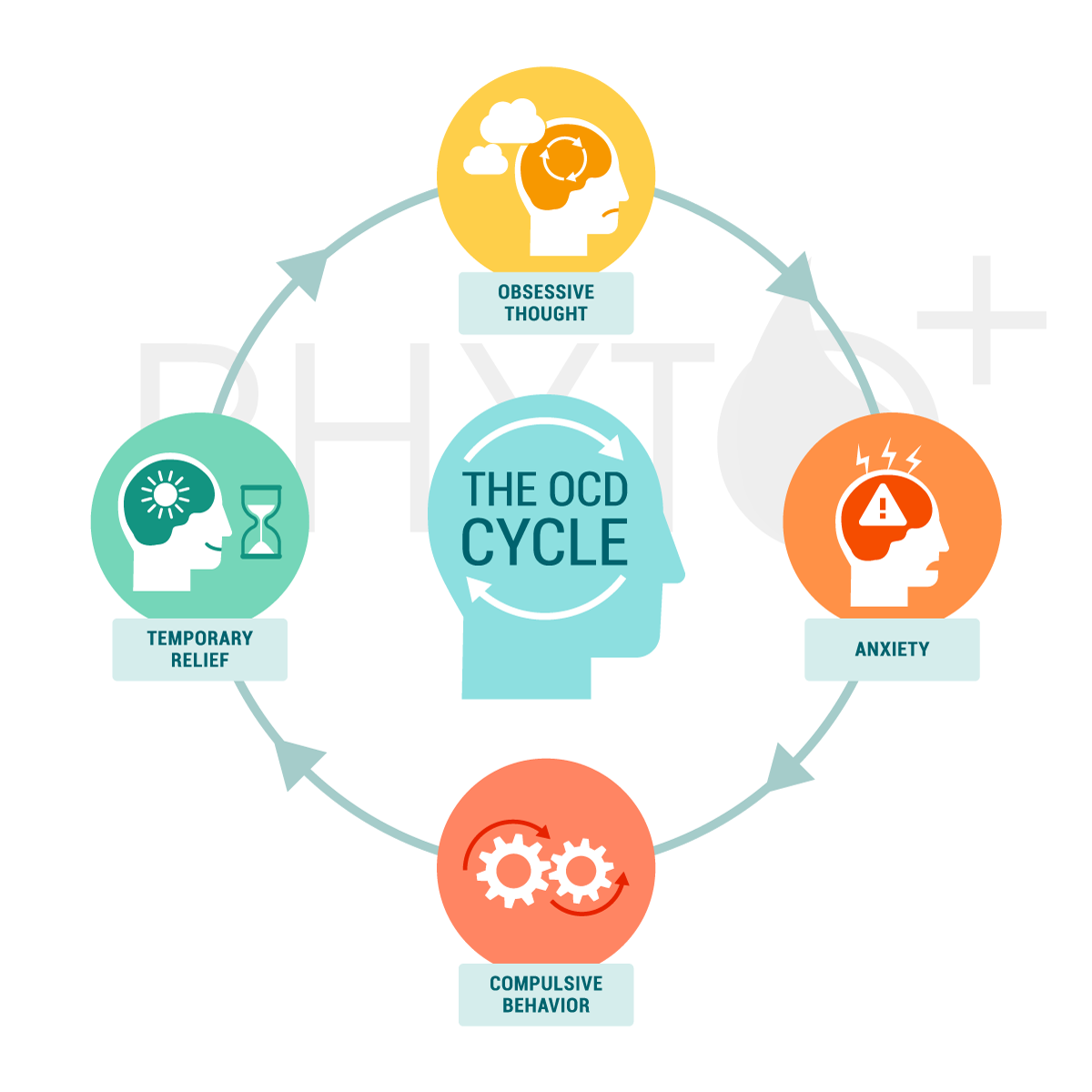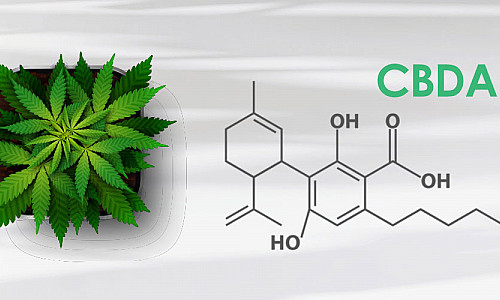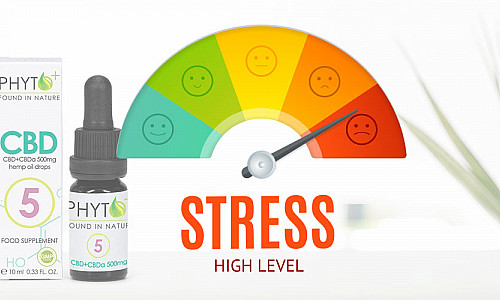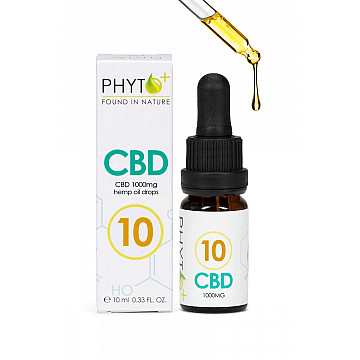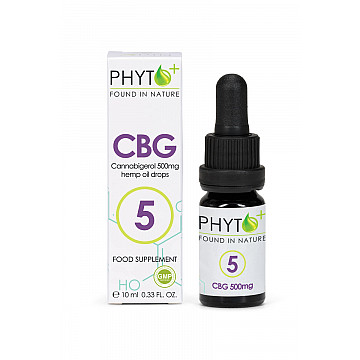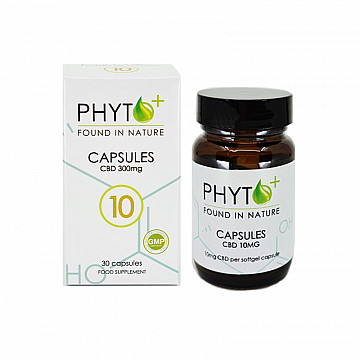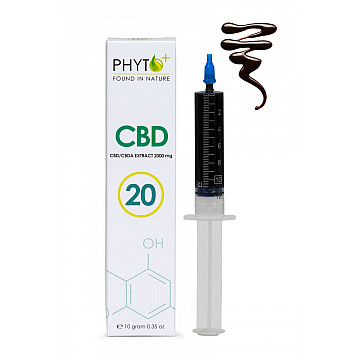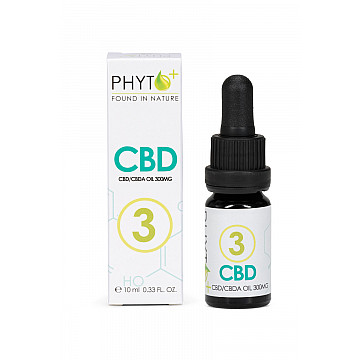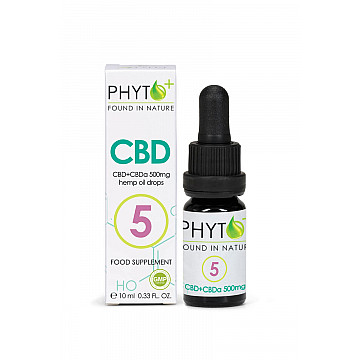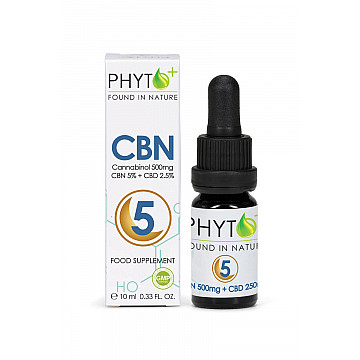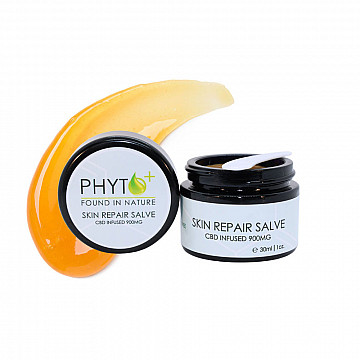OCD, or Obsessive-Compulsive Disorder, is a mental condition that can cause persistent and distressing thoughts, as well as repetitive behaviors or rituals that are difficult to control. OCD can have a significant impact on someone's quality of life and can be difficult to treat. Although there is currently no cure for OCD, some research suggests that CBD oil may effectively manage some of the disorder's symptoms.
What is CBD oil?
CBD oil is a natural supplement derived from the hemp plant. The oil consists of compounds called cannabinoids. These cannabinoids (
CBD, CBDa, CBG, CBN, etc.) work with the body's endocannabinoid system (ECS). This system plays a role in regulating various bodily functions, including mood, appetite, and sleep.
The impact of OCD on daily life
Obsessive-Compulsive Disorder (OCD) can significantly impact someone's life, causing stress and anxiety and interfering with their ability to carry out daily activities. OCD is characterized by persistent, intrusive, and often irrational thoughts (obsessions) that lead to repetitive (repetitive) behaviors or mental acts (compulsions). These obsessions and compulsions can be time-consuming, disrupting work, school, social activities, and personal relationships.
Some common obsessions experienced by individuals with OCD include a fear of contamination, a need for symmetry or order, or unwanted intrusive thoughts of harming themselves or others. These obsessions can lead to compulsive behaviors, such as excessive cleaning or hand washing, repeatedly checking or counting, or mental rituals, such as praying or repeating certain phrases.
The constant need to perform these rituals can lead to significant
stress, anxiety, and disruption in daily life. Individuals with OCD often feel ashamed, and isolated, and may suffer from depression and other mental health problems.
OCD can profoundly impact an individual's quality of life, and it is essential to seek professional help if you or a loved one is experiencing symptoms of Obsessive-Compulsive Disorder OCD.
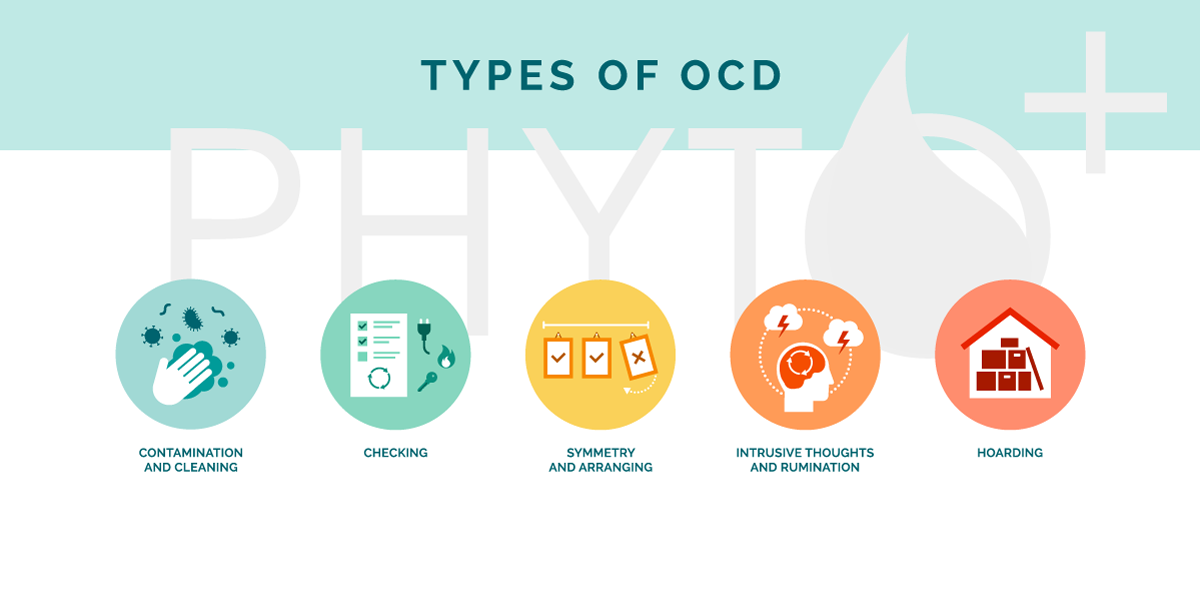
Some common symptoms of OCD include:
- Obsessions: These are persistent, intrusive, and often distressing thoughts, images, or impulses that cause anxiety or stress. Some common obsessions include fear of contamination or illness, concerns about safety, worries about harming oneself or others, and obsessive thoughts about sex, religion, or morality.
- Compulsions: These are repetitive actions or mental rituals that are performed in response to obsessions and are intended to reduce anxiety or stress. Some common compulsions include excessive hand washing or cleaning, checking and rechecking doors, windows, or appliances, counting, repeating words or phrases, or arranging objects in a specific way.
- Avoidance: Some people with OCD try to avoid situations or places that trigger their obsessions or avoid people or objects they believe are contagious or dangerous.
- Stress or impairment: OCD can cause significant stress or impairment in daily functioning, such as interfering with work, school, or social activities.
It is important to note that not everyone with Obsessive-Compulsive Disorder OCD experiences the same symptoms and the severity and frequency of symptoms can vary greatly from person to person. With proper treatment, including therapy and medication, most people with OCD can learn to manage their symptoms and improve their daily functioning.
The OCD cycle
Obsessive-Compulsive Disorder (OCD) is a mental health condition characterized by a cycle (see image above) of intrusive thoughts (obsessions) and repetitive behaviors or mental acts (compulsions) that are aimed at reducing
anxiety. For example, a person with OCD may have an obsessive fear of contamination and repeatedly wash their hands to alleviate anxiety. Alternatively, they may have an obsession with symmetry and engage in compulsive counting or arranging to ease their distress. However, these compulsive behaviors only provide temporary relief and may even exacerbate anxiety in the long term, leading to a vicious cycle of obsessions and compulsions that can significantly impair daily functioning.
How is OCD diagnosed?
The Yale-Brown Obsessive-Compulsive Scale (Y-BOCS) is a standardized, internationally recognized, and widely used rating scale used to measure the severity of Obsessive-Compulsive Disorder (OCD). It is one of the most commonly used instruments for OCD in clinical research and treatments.
The Y-BOCS is designed to measure the severity of obsessions and compulsions, as well as the degree of interference of these symptoms with daily functioning. It includes 10 items that focus on various aspects of OCD, such as the time spent on obsessions and compulsions, the degree of resistance to compulsions, and the degree of control over obsessions and compulsions.
The rater evaluates each item on a scale of 0 to 4, where 0 means no symptoms and 4 means extremely severe. The total score ranges from 0 to 40, with higher scores indicating more severe symptoms of OCD. The Y-BOCS is often used as a measure of treatment response and prognosis of Obsessive-Compulsive Disorder OCD.
Can CBD oil help alleviate OCD symptoms?
CBD oil can help alleviate anxiety, which is often a significant component of OCD. Studies have shown that CBD can reduce anxiety in various conditions, and some researchers believe it may be useful in treating anxiety related to OCD.
In addition,
CBD oil may help regulate serotonin levels in the brain. Serotonin is a neurotransmitter that regulates mood, and many antidepressants work by increasing serotonin levels in the brain. Some researchers believe CBD may have similar effects on serotonin, making it potentially useful in treating Obsessive-Compulsive Disorder and other mood disorders.
However, it is important to note that more research is needed to fully understand the effects of CBD oil on OCD and other mental health conditions. There is enough evidence to investigate
CBD's effects further and delve deeper into its workings.
How does CBD oil help with OCD?
The exact mechanism by which CBD can help people with Obsessive-Compulsive Disorder is not fully understood, and more research is needed to confirm its effectiveness for this condition. However, there are several ways in which CBD oil may be able to help people with OCD:
- Anxiety reduction: CBD has anxiolytic (anti-anxiety) properties, which may help reduce the anxiety and stress associated with OCD.
- Neuroprotective effects: CBD has neuroprotective properties, which may help protect the brain from damage caused by chronic stress and anxiety.
- Modulation of neurotransmitters: CBD can affect the levels of various neurotransmitters in the brain, including serotonin and glutamate, which are believed to be involved in developing OCD symptoms.
- Anti-inflammatory effects: CBD has anti-inflammatory properties, which may help reduce inflammation in the brain that contributes to the development of Obsessive-Compulsive Disorder OCD symptoms
Are there studies on the effect of CBD oil on OCD?
Yes, there are a few promising studies on this topic. Although some studies suggest that CBD oil may be effective in controlling symptoms of OCD, research in this area is still in its early stages, and more studies are needed to understand the potential benefits fully.
A study published in the Journal of Clinical Psychiatry in 2019 found that a single dose of CBD oil reduced symptoms of anxiety and compulsions in people with Obsessive-Compulsive Disorder, as measured by the Yale-Brown Obsessive-Compulsive Scale (Y-BOCS). However, this was a small study, and more research is needed to confirm these findings.
Another study published in the Journal of Psychopharmacology in 2020 found that CBD oil reduced anxiety and improved sleep in a group of people with anxiety and
sleep disorders, which are often associated with OCD. However, this study did not specifically examine the effects of CBD oil on Obsessive-Compulsive Disorder OCD symptoms.
Research in Brazil: The research team, led by *Dr. Francisco Guimarães of the University of Sao Paulo School of Medicine, tested CBD on rats treated with the drug mCPP, which is used to activate OCD symptoms.
The results were most interesting, even at a very low dose, CBD was able to reverse the obsessive-compulsive behavior caused by the mCPP drug. "a possible anti-compulsive effect of CBD," the authors published in the journal Fundamental Clinical Pharmacology. They concluded that this study provided support for previous studies.
In a study published in 2011, researchers reduced symptoms of obsessive-compulsive behavior in rats with a synthetic cannabinoid similar to THC (Tetrahydrocannabinol). This indicates that CBD is not the only substance that can help with these types of conditions.
Who is Dr. Francisco Guimarães?
Dr. Francisco Guimarães is a researcher at the School of Medicine of the University of Sao Paulo in Brazil who has conducted various studies on the potential therapeutic effects of cannabidiol (CBD).
One of Dr. Guimarães' most notable studies was published in the Journal of Psychopharmacology in 2011. In this study, Dr. Guimarães and his team investigated the effects of CBD on animal models of anxiety and depression. They found that CBD reduced anxiety and improved mood in the animals and suggest that CBD may have potential as a treatment for anxiety and mood disorders in humans.
Dr. Guimarães has also conducted research on the use of CBD for the treatment of epileptic seizures. In a study published in the Brazilian Journal of Psychiatry in 2019, Dr. Guimarães and his colleagues investigated the use of CBD in patients with epilepsy who were resistant to treatment. They found that CBD was well tolerated and reduced the frequency of seizures in many participants.
Overall, Dr. Guimarães' research suggests that CBD may have the potential as a treatment for a variety of conditions, including anxiety, depression, and epileptic seizures. However, more research is needed to understand the effects of CBD fully and to determine the best ways to use it as a therapeutic agent.
Finally:
If you or a loved one are experiencing symptoms of Obsessive-Compulsive Disorder OCD, it can profoundly impact your quality of life. It is, therefore, essential to seek professional help. With the right treatment, including therapy and medication, most people with OCD can learn to manage their symptoms and improve their daily functioning.
Do you or a loved one want to use CBD oil?
CBD oil is a natural product. It has become popular due to its potential health benefits. Generally, it is considered safe for use because it is non-addictive and does not cause psychoactive effects. It is important to note that CBD oil can interact with some medications, so it is important to speak with a healthcare provider before use if you are taking medications. Additionally, buying CBD oil from a reliable source is crucial to ensure that it is pure and free of contaminants like our
Phyto Plus® CBD oil products. CBD oil or
capsules can be a safe and beneficial addition to your wellness routine when used responsibly.
Sources:
"Cannabidiol inhibits the reward-facilitating effect of morphine: involvement of 5-HT1A receptors in the dorsal raphe nucleus" (Fakhfouri G, et al., 2012).
"Cannabidiol enhances anandamide signaling and alleviates psychotic symptoms of schizophrenia" (Leweke FM, et al., 2012).
"Potential use of cannabidiol in anxiety and obsessive-compulsive disorder" (Blessing EM, et al., 2015).
"Cannabidiol as a potential treatment for OCD" (Pinto HC, et al., 2021).
"Cannabidiol, a Cannabis sativa constituent, as a treatment for nicotine dependence in rats" (Viudez-Martínez A, et al., 2018).
"Cannabidiol reduces the anxiety induced by simulated public speaking in treatment-naïve social phobia patients" (Bergamaschi MM, et al., 2011).
"Cannabidiol attenuates sensorimotor gating disruption and molecular changes induced by chronic antagonism of NMDA receptors in mice" (Long LE, et al., 2010).
"Cannabidiol improves cognitive impairment and reverses cortical transcriptional changes induced by ketamine anesthesia in rats" (Schiavon AP, et al., 2018).
"Cannabidiol, neuroprotection and neuropsychiatric disorders" (Campos AC, et al., 2016).
"Cannabidiol inhibits the hyperlocomotion induced by psychotomimetic drugs in mice" (Moreira FA, et al., 2010).


